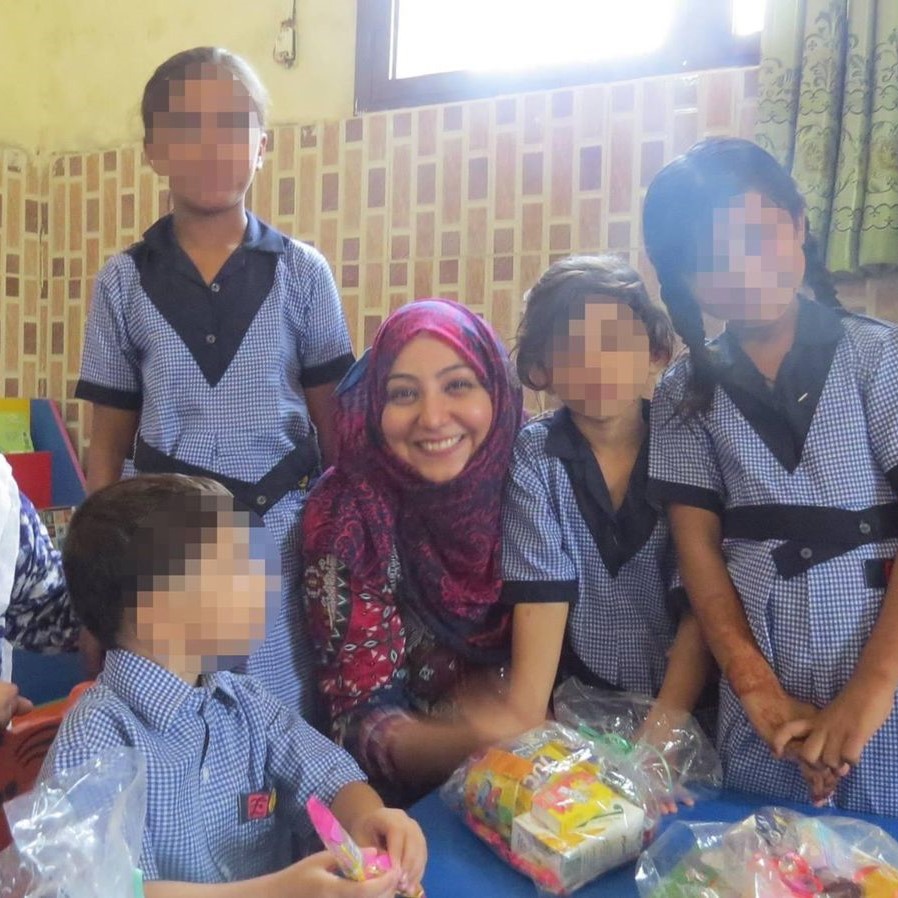A section within the limits of the Central Jail Hyderabad is reserved for women. Sehrish* has been in this part of the jail called “women's jail” for the past year. Her eight-year-old son and nine-year-old daughter live with her. She says that her children will be unsafe outside, so she is keeping them with her in jail.
She is serving seven years of imprisonment for the crime of marijuana possession.
Her daughter Shumaila* is a second-grade student in the prison in a one-room school called 'Early Learning Centre'. She wants to study and become a medical doctor. She also plays football in the garden during breaks. Her son Kashan*, who studies in class 1, likes the uniform provided by the centre. He wants to become a military commando when he grows up.
Anam*, imprisoned for the past four years in the murder case, was sentenced to 10 years in prison after being found guilty about three months ago. Her son Rizwan* was barely three months old when she came to jail.
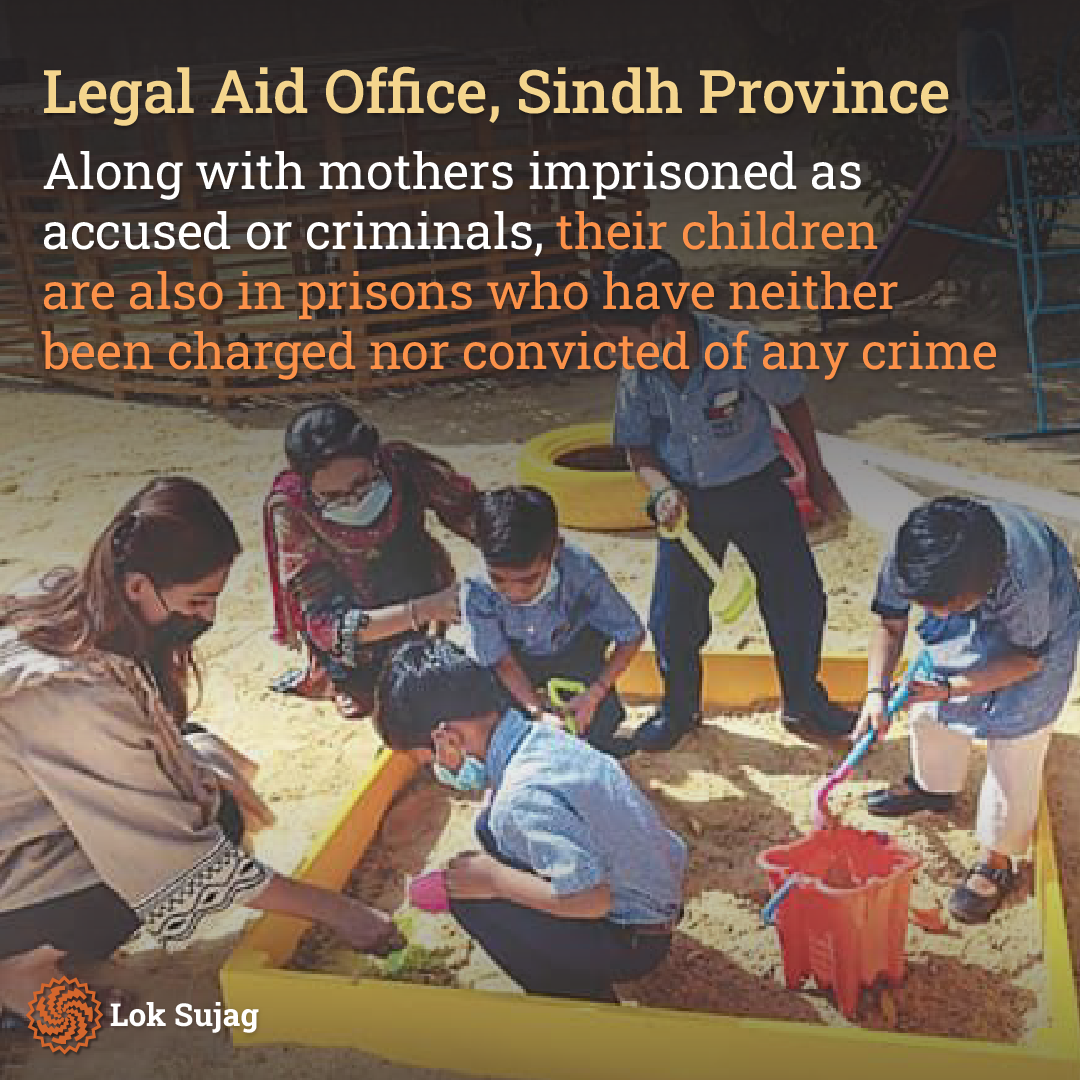
Now, he studies in the first grade in jail. He has not learned his mother tongue, Sindhi, and communicates in Urdu. His biggest wish is to get out of prison with his mother.
Dr Irfana Khan is the Chief Women's Medical Officer in a women's jail in Hyderabad. She has been working in prison for 15 years. According to her, about eight children were born in the prison during her tenure.
She said that when under-trial prisoner mothers step out of jail to go to court, their children also go with them, but the children of convicted mothers do not go out.
"Some of the children who live with their mothers in prisons are born in prison, and some of them come to prison at the age of drinking their mother's milk. They grow up here and are ignorant of the outside world."
According to her, children living in prison with their mothers also use the prison terms. The children call the food bhata because that is what it is called here.
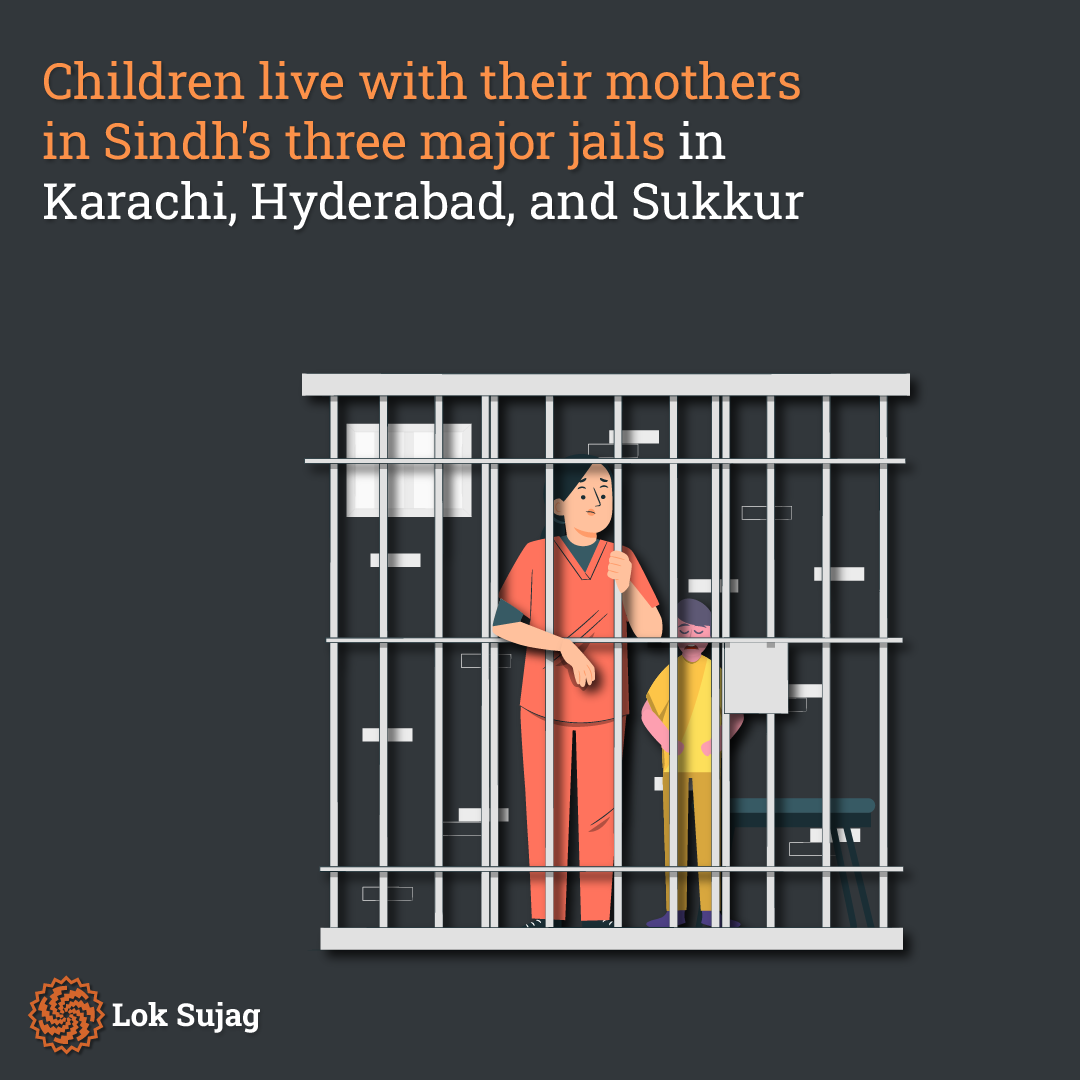
"Incarcerated women's talk, frustration, and anger harm children with mothers."
She says that female inmates are also involved with the staff in preparations for events or functions in the jail. The happiness of these preparations improves their mental state during these days.
Dr Habiba Hassan, a human rights leader and paediatrician from Karachi, has been visiting the women's section of Central Jail Karachi for the past 40 years. She established the first Montessori school here for children with imprisoned mothers in 1995.
Referring to those days, she says, "Foreign women, usually imprisoned on charges of smuggling, used to teach in the school we set up. We used to pay them five hundred rupees per month. These women also benefited from a reduced sentence under the Jail Act due to their good behaviour."
Dr Habiba said that most of the children living in the prison then had not seen any animals except mice and cats.
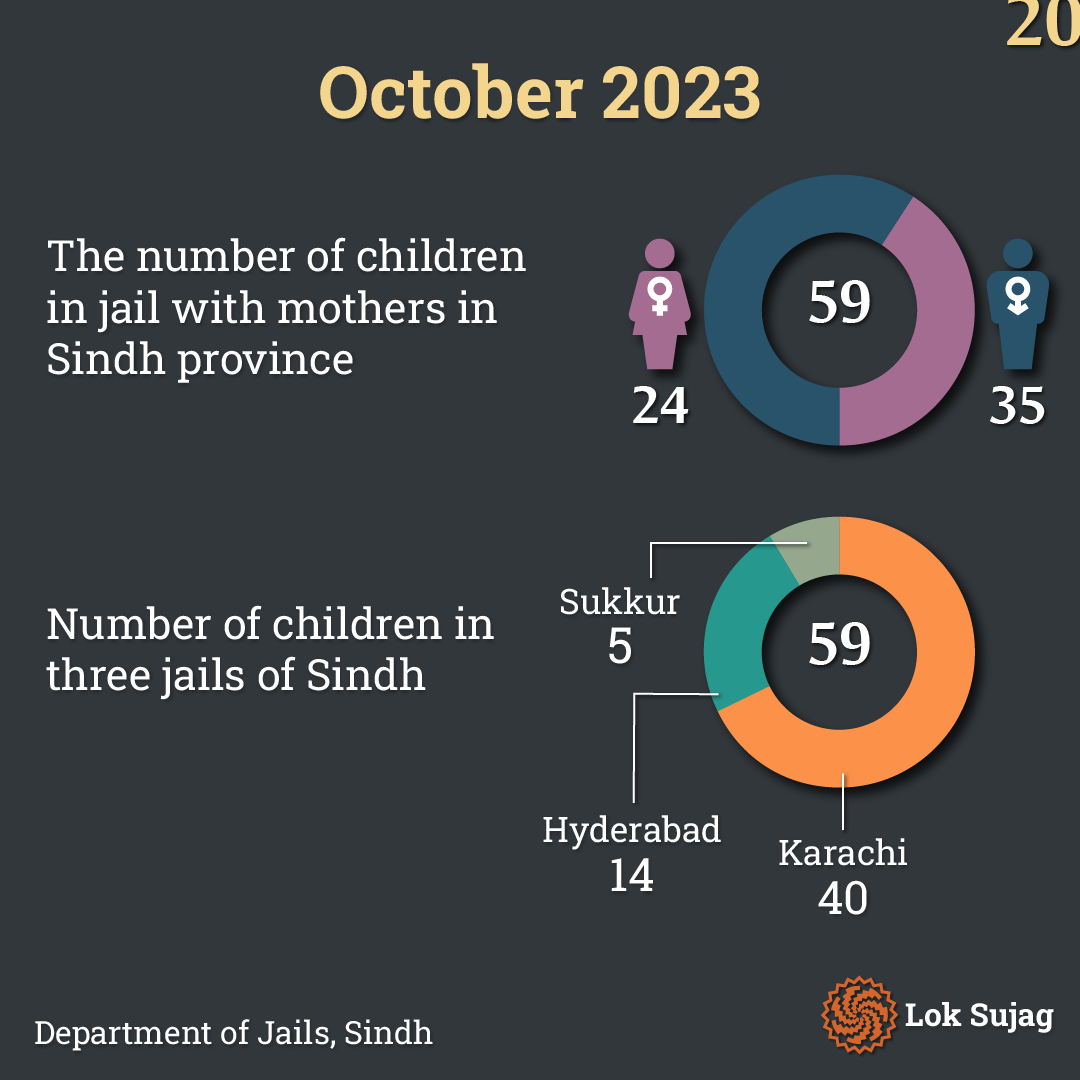
According to her, at present, there is a better environment for the education and training of children in the section reserved for women in the central jails of Karachi and Hyderabad. Early learning centres have been set up there to teach children. There are 'Sensory Gardens' to entertain and enhance children's understanding. Toys are also available for them to play with. Lady teachers are appointed in the learning centres. The curriculum taught there has also been made according to the minds and conditions of these children living in special prisons.
“Tests are taken for weekly and monthly assessments of children. A few animals and birds are also kept in the jail for children. The children are often taken to the zoo by the jail administration."
The first Early Learning Centre was established in Karachi Central Jail in 2015, and the second in Hyderabad Central Jail in 2017 in a women's jail with the collaboration of the Legal Aid Office. Philanthropists and organisations also provided financial support and resources to the Legal Aid Office for these centres.
"The biggest longing of children is to see the world outside the prison and soon go out with their mothers," says Dr Habiba.
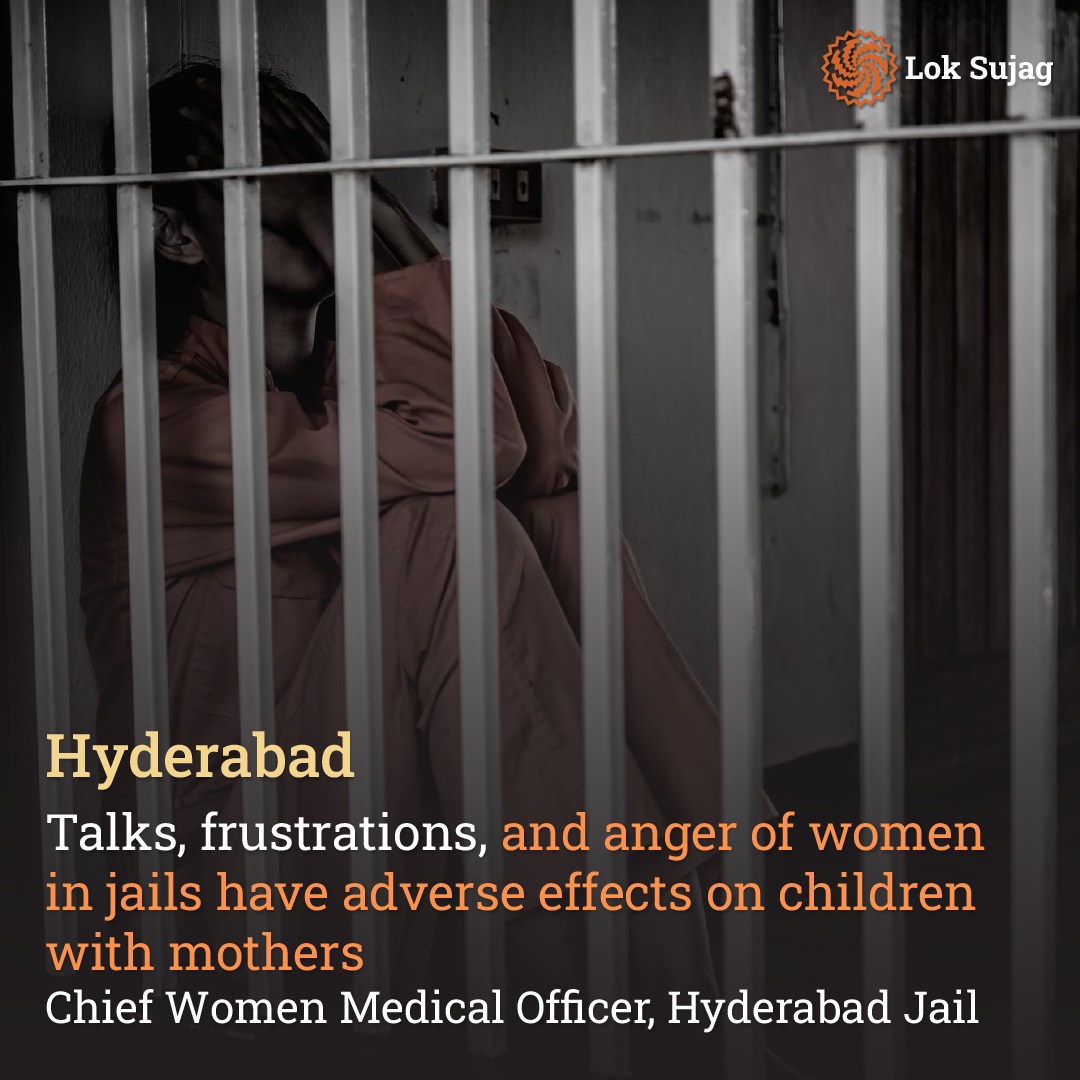
The Legal Aid Office has been working in Sindh province since 2004 to provide access to justice for prisoners and raise awareness on legal matters. The former judge of the Supreme Court of Pakistan, Justice Nasir Aslam Zahid, is its head.
Fatima Umar Farooqui has been working as a programme and research coordinator in the Committee for the Women Prisoners of the Legal Aid Office for the past two years. She is often seen in the jails of Sindh.
According to her, along with mothers who are imprisoned as accused or criminals, their children are also in jail and are neither accused nor convicted of any crime.
"These are children who have no support, but their mothers or their mothers think they are safe with them in prison. Children live with their mothers in Sindh's three major jails in Karachi, Hyderabad, and Sukkur."
She said that most of these children play only two or four games like thief, police, judge, lawyer, etc. Some of these boys and girls make this prayer in happiness, "May Allah make you a judge."

Fatima said that these children are unfamiliar with family relationships and social life.
She said that in the joy of going out, these children are often ready for the centre or school ahead of time. They all want to go out, play, and be in a different environment.
According to Dr Irfana Khan, milk is provided daily to children up to five years old, apart from pregnant and lactating women imprisoned in jails.
According to the data from the Sindh Prison Department, the number of children living in jail with their mothers in Sindh province till October 3, 2023, is 59, including 24 girls and 35 boys.
There are 40 children with mothers in Karachi, 14 in Hyderabad, and five in Sukkur Jail. The total number of imprisoned mothers is 44, including 30 in Karachi, 11 in Hyderabad, and three in Sukkur.
Also Read
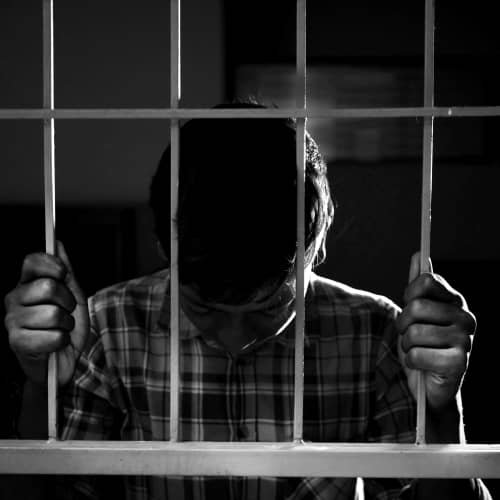
Putting children in jail: Ruining young lives through a flawed system of crime and punishment.
According to these figures, the youngest child is two months old, followed by a four-month-old girl. They are with their mothers in Karachi Jail. The older ones include Sehrish’s daughter and son. Among the mothers incarcerated in Karachi Jail are two mothers from Afghanistan with children aged eight months and two years.
Iqbal Ahmad Dethu is the Chairperson of the Sindh Human Rights Commission, working under the Government of Sindh. He said that about 90 per cent of women prisoners are on trial, and the rest are convicted. According to him, children of imprisoned mothers become participants in their mother's sufferings. They accompany her to the court and observe the proceedings.
He says, "A baby needs breast milk for at least six months. A mother can take good care of her child if she has good food and privacy in prison."
He recommends that incarcerated mothers who are not convicted or charged with a significant crime be granted two months' paid release for maternity or breastfeeding.
“According to the law, a meeting has to be convened by the Provincial Home Secretary for release on the payroll. This meeting is held at the divisional level across the province under the chairmanship of the Commissioner and Deputy Inspector General.”
Published on 1 Dec 2023
